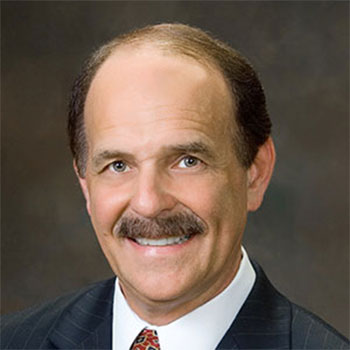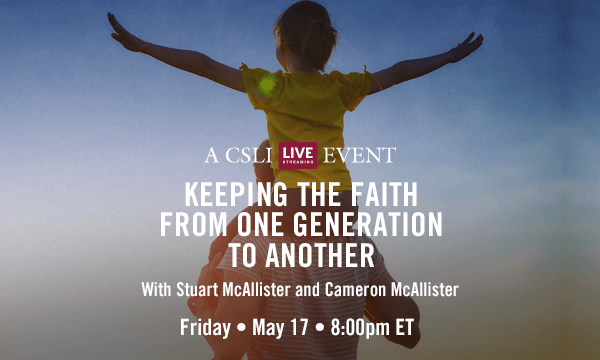Back to series



Spirituality and Emotions
What We Can Learn from Mother Teresa’s Dark Nights of the Human Soul
Click here to open a Print - Friendly PDF
The world was stunned last year to learn that one of the greatest saints of the 20th century experienced a profound sense of God’s absence in her life. The recently published book, Mother Teresa: Come Be My Light, is a collection of private correspondence between this remarkable woman and her confessors and superiors over a period of at least six decades.
We know Mother Teresa as the Calcutta nun who led a small band of caregivers to bind up the wounds of the sick, homeless, and abandoned. Her merciful spirit and courageous acts were heralded worldwide as reflecting the very Savior she longed to emulate. Ironically, at the very same time that she was extending mercy and hope to the hopeless, Mother Teresa was struggling to feel the presence of God in her own life.
In her confessions, Mother Teresa laments the “dryness,” “darkness,” and “loneliness” she felt within. On one occasion she spoke of “Christ in our hearts, Christ in the poor we meet, Christ in the smile we give and in the smile that we receive.” But just three months prior to that statement, she confided in a confessor, “As for me, the silence and emptiness is so great, that I look and do not see—listen and do not hear—the tongue moves [in prayer] but does not speak.” On another occasion she wrote, “Please pray especially for me that I may not spoil His work and that Our Lord may show Himself—for there is such terrible darkness within me, as if everything was dead.” How do we make sense of the inner anguish of Mother Teresa? What do we do with these personal laments of spiritual darkness—sentiments she had hoped would remain private?
Some will of course contend that there is no reality beyond ourselves, and Teresa’s quest for divine presence is a misguided aspiration. The outspoken atheist and author of God is Not Great, Christopher Hitchens, says of Mother Teresa, “She was no more exempt from the realization that religion is a human fabrication than any other person.” Her attempted cure of “more and more professions of faith could only have deepened the pit that she had dug for herself.” But most of us, whether for reasons of the heart, or reasons of the mind, or both, will not be satisfied with Hitchens’ dismissive, dogmatic atheism. Such a framework can hardly account for the love and mercy exhibited by the likes of Mother Teresa. The drive to serve others unselfishly and the deep human sense that there is something or someone beyond our finite selves is hard to explain on purely naturalistic grounds.
When we reflect on Mother Teresa’s “dark nights of the human soul,” we do well to remember that Jesus himself echoed the same. On the cross, in the midst of his own agony in bearing the world’s sins, he cried out with a Psalm of lament. We might have expected Jesus to quote from Psalm 23, “The Lord is my shepherd, I shall not want.” But instead he quoted from Psalm 22, “My God, my God, why have you forsaken me?” Jesus felt the pangs of distress in the garden of Gethsemane and deep emotional and physical pain as he hung on the cross. Thus, his incarnation, suffering, and death identify with us in our own laments and internal anguish. Because he’s been there, Christ walks with us in the darkest and deepest moments of life.
Some will say, but Jesus came to give us happiness and joy. After all, he declared, “I have come that you might have life, and have it to the full” (Jn. 10:10). Surely true believers should be exempt from depression, loneliness, and inner strivings that are at war with our professions of belief.
It is true that joy is one of the fruits of the Holy Spirit (Gal. 5:22). It is difficult to know why Mother Teresa had difficulty feeling that joy of the Lord in her own life. But I suspect that our own pursuits of joy and happiness often reflect more the mood of our culture than the fruit of the Spirit. We live in a society that wants happiness without pain, achievement without cost, success without burden. Many are attracted to a health and wealth gospel that distorts reality, God’s Word, the meaning of the cross, and the experience of millions of believers down through history. God never promises a life immune from struggle. He promises rather to walk with us in moments of turmoil, tragedy, and emotional lows. God promises that he is there, even when his presence is not felt.
That Mother Teresa did not “feel” God did not mean the absence of God. We may never know why her feelings failed to accord with her commitments. Perhaps it was deep-seated emotional depression that was never medically treated. Or perhaps God in his sovereignty allowed her to experience the dark nights of the human soul to engender a life of incredible love and care for “the least of these.” Or perhaps she strove so hard to show Christ’s love that grace really was an issue for her.
The fact that she continued to believe and to share the love of Christ, even without feeling divine presence, demonstrates the depth of her love and the perseverance of her faith. Later in life, after years of emotional darkness, and after countless prayers for God’s comforting nearness, she prayed: “If this brings you glory—if souls are brought to you—with joy I accept all to the end of my life.” I only wish my own faith and trust in Christ reflected the same.
We may have difficulty knowing what to do with Mother Teresa’s confessions because we are so far removed from the life of true faith, deep commitment, and authentic spirituality. Perhaps we struggle with her anguish, because we desperately want lives free from struggle, and hence seek a “god” made in our image. And what most people want from this “feel-good god” is superficial happiness, a life without pain, and a journey with no deep valleys. We want a “cosmic Santa Claus” as sovereign of the universe.
We likely also have difficulty handling Mother Teresa’s confessions because we too readily equate spirituality with feelings and emotional states. We feel spiritual when our emotions are high, when in fact those emotional feelings may have little to do with hearts that are attuned to God and lives that truly reflect the path of our Savior. Emotions are an important part of life, but a desired emotional state is never the sign of true faith or spiritual maturity.
I believe that God was with Mother Teresa, though she rarely “felt” the divine presence she longed for. And God is with us when we genuinely trust and follow our Lord and his kingdom. Faith is ultimately not about our feelings. It is about the gracious God of the universe who is really there, and will walk with us, even when our emotions say otherwise.

Dennis Hollinger
ProfessorDennis Hollinger is President Emeritus and the Distinguished Senior Professor of Christian Ethics at Gordon-Conwell Theological Seminary. He served there as President and Colman M. Mockler Distinguished Professor of Christian Ethics. Prior to assuming this role, he served as President and Professor of Christian Ethics at Evangelical Theological Seminary. He is the author of four books which include The Meaning of Sex: Christian Ethics and the Moral Life and Choosing the Good: Christian Ethics in a Complex World. Dennis is also a visiting professor of Christian ethics at Trinity International University in the graduate program in Bioethics. He received an M.Div. from Trinity Evangelical Divinity School, an M.Phil. and Ph.D. from Drew University, and did post-doctoral studies at Oxford University.

 COPYRIGHT: This publication is published by C.S. Lewis Institute; 8001 Braddock Road, Suite 301; Springfield, VA 22151. Portions of the publication may be reproduced for noncommercial, local church or ministry use without prior permission. Electronic copies of the PDF files may be duplicated and transmitted via e-mail for personal and church use. Articles may not be modified without prior written permission of the Institute. For questions, contact the Institute: 703.914.5602 or email us.
COPYRIGHT: This publication is published by C.S. Lewis Institute; 8001 Braddock Road, Suite 301; Springfield, VA 22151. Portions of the publication may be reproduced for noncommercial, local church or ministry use without prior permission. Electronic copies of the PDF files may be duplicated and transmitted via e-mail for personal and church use. Articles may not be modified without prior written permission of the Institute. For questions, contact the Institute: 703.914.5602 or email us.
-
Recent Podcasts
A Welcome Change in Apologetics
by Randy Newman, Aimee Riegert on April 19, 2024We’re burdened for our friends who don’t know...Read More
-
Questions That Matter Podcast – Samuel James and Digital Liturgies
by Samuel James, Randy Newman on April 19, 2024
-
The Side B Stories – Dr. James Tour’s story
by Jana Harmon, James Tour on April 12, 2024
-
Recent Publications
Isn’t Morality Relative?
by Christopher L. Reese on April 1, 2024It is widely accepted in the Western world...Read More
-
Do Muslims and Christians Worship the Same God?
by Andy Bannister on March 1, 2024
-
Artificial Intelligence and Its Impacts on Humanity
by John Lennox on February 13, 2024
0
All Booked
0.00
All Booked
0.00
All Booked
22140
GLOBAL EVENT: Keeping the Faith From One Generation To Another with Stuart McAllister and Cameron McAllister, 8:00PM ET
https://www.cslewisinstitute.org/?event=global-event-keeping-the-faith-from-one-generation-to-another-with-stuart-mcallister-and-cameron-mcallister-800pm-et&event_date=2024-05-17®=1
https://www.paypal.com/cgi-bin/webscr
2024-05-17

Next coming event
Days
Hours
Minutes
Seconds
GLOBAL EVENT: Keeping the Faith From One Generation To Another with Stuart McAllister and Cameron McAllister, 8:00PM ET
On May 17, 2024 at 8:00 pmSpeakers

Dennis Hollinger
Professor
Team Members

Dennis Hollinger
ProfessorDennis Hollinger is President Emeritus and the Distinguished Senior Professor of Christian Ethics at Gordon-Conwell Theological Seminary. He served there as President and Colman M. Mockler Distinguished Professor of Christian Ethics. Prior to assuming this role, he served as President and Professor of Christian Ethics at Evangelical Theological Seminary. He is the author of four books which include The Meaning of Sex: Christian Ethics and the Moral Life and Choosing the Good: Christian Ethics in a Complex World. Dennis is also a visiting professor of Christian ethics at Trinity International University in the graduate program in Bioethics. He received an M.Div. from Trinity Evangelical Divinity School, an M.Phil. and Ph.D. from Drew University, and did post-doctoral studies at Oxford University.





